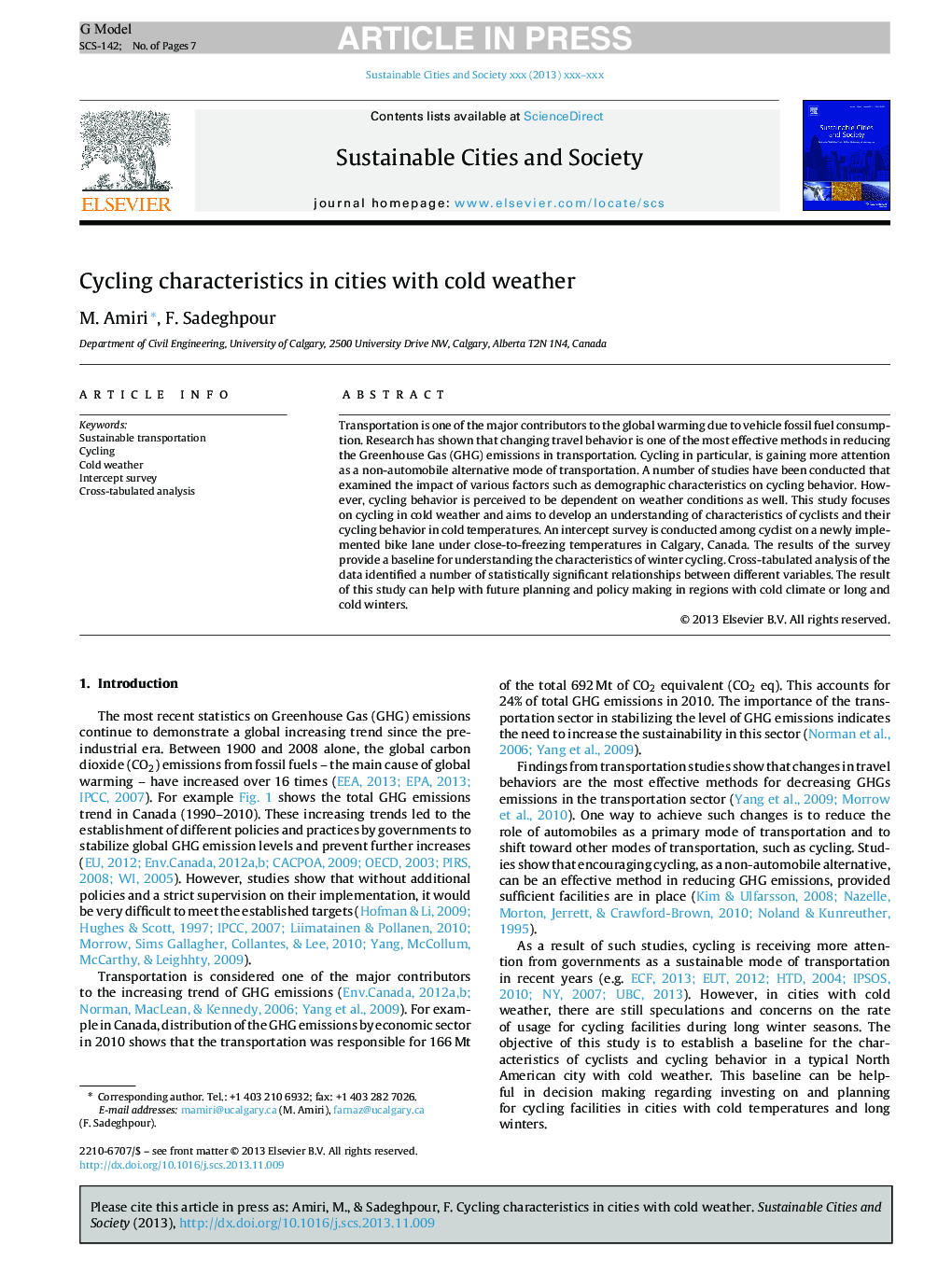| Article ID | Journal | Published Year | Pages | File Type |
|---|---|---|---|---|
| 6776496 | Sustainable Cities and Society | 2015 | 7 Pages |
Abstract
Transportation is one of the major contributors to the global warming due to vehicle fossil fuel consumption. Research has shown that changing travel behavior is one of the most effective methods in reducing the Greenhouse Gas (GHG) emissions in transportation. Cycling in particular, is gaining more attention as a non-automobile alternative mode of transportation. A number of studies have been conducted that examined the impact of various factors such as demographic characteristics on cycling behavior. However, cycling behavior is perceived to be dependent on weather conditions as well. This study focuses on cycling in cold weather and aims to develop an understanding of characteristics of cyclists and their cycling behavior in cold temperatures. An intercept survey is conducted among cyclist on a newly implemented bike lane under close-to-freezing temperatures in Calgary, Canada. The results of the survey provide a baseline for understanding the characteristics of winter cycling. Cross-tabulated analysis of the data identified a number of statistically significant relationships between different variables. The result of this study can help with future planning and policy making in regions with cold climate or long and cold winters.
Related Topics
Physical Sciences and Engineering
Energy
Renewable Energy, Sustainability and the Environment
Authors
M. Amiri, F. Sadeghpour,
